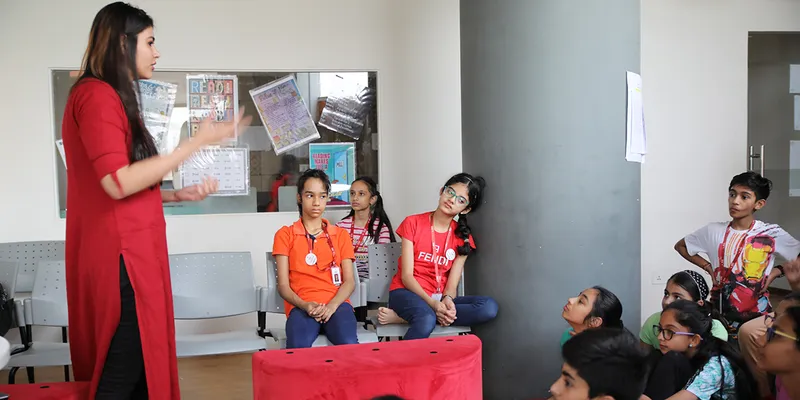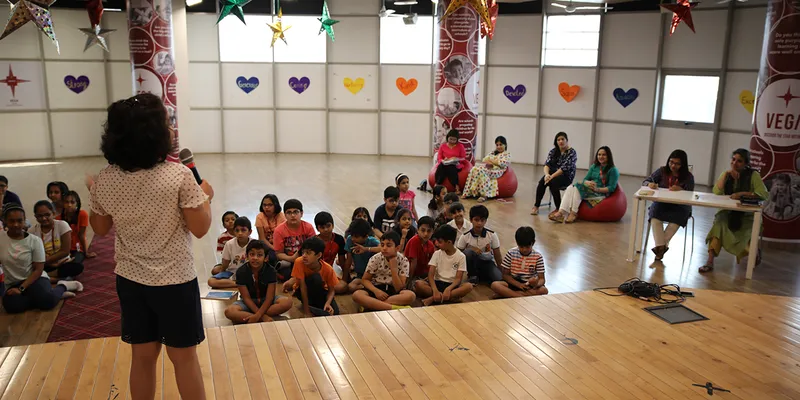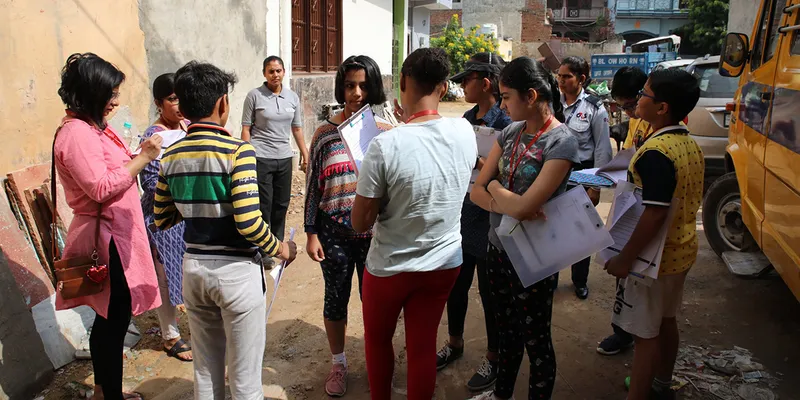

The Lost Trait of Empathy: The role of Empathy in shaping Future Leaders
Empathy is the ability to put one’s self in the shoes of another. Most of the problems in the world are caused when people do not care for each other, and cannot see the other’s point of view. The inability to see things from others’ perspectives creates unending cause and effect cycles of negativity and resentment, and often leads to rivalries and wars.
Compassion and kindness are close cousins of empathy. Together these are the most important human values that create unity and preserve positivity. Since the beginning of time, great leaders, spiritual masters and philosophers alike have underscored the importance of imbibing these values in children.
Empathy also helps an individual emerge as a responsible and helpful community member and leader.
Young children who are empathetic make friends easily and are less likely to resort to bullying and other unhealthy behaviours. Empathy leads to stronger friendships and relationships and is an essential ingredient for real collaboration. Empathy helps learners to work well with others, leads to increased morale and motivation, making learners far more productive and happy.
Studies show that when young learners have empathy, they demonstrate:
● Higher classroom engagement
● Improved academic achievement
● Lower incidents of bullying
● Reduced aggression
● Improved communication
● Leadership ability
Benefits of empathy in a school environment
Since learners come from different regions, religions and socio-economic backgrounds, empathy helps them relate better with their peers. It helps learners build authentic and long-lasting relationships.
“Empathy is at the heart of great classroom culture.”
Strengthens the community outside the school
Empathy is the ability that helps children understand the feelings of others. When children learn to empathize with others, it deepens their relationships — not just in the classroom but outside school. Children develop stronger relationships with all those they interact with — elders, parents, relatives, family friends, neighbors and with other children.
Prepares Learners to emerge as Future Leaders

Empathy defines real leaders and differentiates true leaders from merely popular ones. To emerge as true and trusted leader, one must be able to understand and relate with others based on trust and respect. Empathy strengthens trust and deepens respect.
Irrespective of the professions our children will select in the future, to be effective leaders, they must be able to build and preserve relationships of trust with all those in their sphere of influence. Empathy is a key ingredient towards building relationships based on respect. It is the single most important factor while selection of senior leadership in some of the most respected organizations around the world.
Four Steps for Educators to Build Empathy at a school
- Model Empathy

Children don’t learn what we preach but practice what we do. If educators are able to model empathy in their communication with their peers and learners, they are more likely to help develop it in their learners. The principle of ‘mirror neuron’ in neuroscience suggests that children follow and imbibe the traits of the elders and role models around them.
2. Teach the Importance of Empathy

Teach children what empathy is and why it matters at school, at home, and in society. History is a great subject to help children learn about empathy. Educators can quote examples of leaders from history who failed to empathize with their people, and those that succeeded, and establish the cause and effect relationships of such behaviours. Research and projects involving great people who have lived in the past and the positive impact they made on the world can be powerful ways to help young learners make the important connections between right actions and their consequences.
3. Practice Empathy

It’s not enough teaching empathy only in theory. Educators must make conscious efforts to help their learners practice empathy. Empathy in action is real empathy. Educators need to help learners come up with real world projects and solve real world problems of the community around the school. This is the most powerful way to make a difference and apply knowledge towards doing good and making a positive difference to those around us.
4. Equip with social emotional skills

One of the main reasons why learners are unable to empathize is because of underdeveloped emotional and social skills, hence cannot effectively deal with fear, frustration, anger, and conflict. If educators themselves have well developed social-emotional skills, they will be able to help their learners build the right skills too. Schools have a responsibility to assess these vital skills during the recruitment process, as well as to design social emotional skills development and training programs for their educators.
Empathy is not inherited. It’s a skill that can (and should) be learnt
Just like most skills, empathy can be developed with the right modelling, tools, training and practice. It is the prime responsibility of schools (and educators) to equip their learners so they can become the future leaders of their communities and beyond. Are we ready to bring empathy back into our schools?







